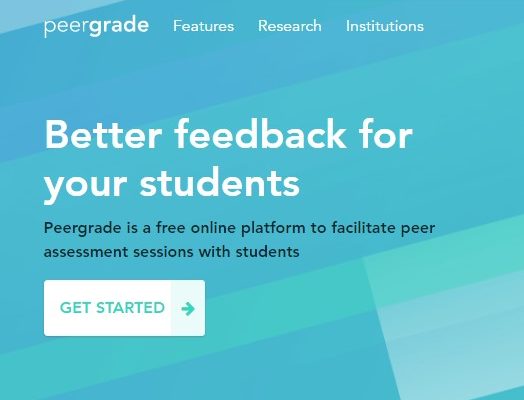What Would Happen if Learning Materials Were Provided to All Students on or Before the First Day of Class?

Mike Hale, Ph.D. VP Education North America
VitalSource
Why Doesn’t this Happen?
If all required learning materials, including textbooks, were provided to all students on or before the first day of class, the average price per student of learning materials would drop and students would be more successful.
Then why is it the vast majority of college students do not come to class with required content on the first day of class, and a significant number never get their core textbooks at all?
First, because required doesn’t actually mean required in higher education. Is this because colleges and faculty do not care about the success of students? Of course not. Ask any academic leader on a college campus if students would be better off if they had all required learning materials and the answer will be a resounding, YES. Faculty spend valuable time planning their courses and choosing resources; however, in the end, after all that work, most institutions and most professors are willing to leave it up to the student whether or not they actually acquire and engage with the content.
The actual content domain to be mastered in the course is, astoundingly, practically the only thing left to the whims of student choice. It is absolutely required that all dental students MUST have an articulator for class (an instrument for studying tooth and jaw). You cannot pass; you cannot even come to class, without one. But is it absolutely required that students possess the material detailing the various bones, muscles, nerves, and tendons involved? It is not.
Traditionally, little thought was given to the price of the resources or whether the students will purchase them. Why didn’t professors pay attention to price if they are so carefully choosing these resources?
One reason is that resources used to be reasonably priced and another is that professors don’t have to pay for the content. Economists call this the Principal Agent Problem, meaning that the decision-maker (agent/faculty) is not the one affected (principal/student). This doesn’t mean that faculty don’t care about the price of textbooks, it is simply that it has not been the predominant factor in their equation for determining course materials. Certainly some instructors care strongly about cost, but the means they use to address the problem—think third-generation scans of articles, not properly licensed, or two copies of a book in the library for a class of 400 students—reduce the quality of instruction and are in the long term not effective against cost.
What is preventing all colleges and universities from including the course materials in the cost of the course given that is guaranteed to cut student costs of learning materials and increase student success?
Ironically, one reason is that institutions are sensitive to the perception of adding any cost tied directly to the institution. The cost of tuition has more than doubled (measured in constant dollars) over the past 30 years and institutions are reluctant to be perceived as increasing student costs. However, students spend an average of $1300 per year on textbooks and supplies alone. That’s the equivalent of 39 percent of tuition and fees at a community college, and 14 percent of tuition and fees at a four-year public university on average. Including textbooks in tuition would save students at least $800 per year, a more than 60 percent reduction in cost.
Rather than consider the total cost of education, which includes required learning materials it is easier to give students a list of “required materials” and leave that decision-making to them on how, when or whether, they get them. While conveniently allowing institutions to wash their hands of the costs of course materials, this model has directly led to the massive increase in cost of learning materials: an 82 percent increase in the cost of textbooks over the last 10 years. This number is more than three times the rate of inflation.
How can this be? The economics are simple. Education publishers invest tremendous resources into the creation of textbooks working with experts in the field – often leading professors – to author, curate, organize and deliver content and assessments in a package designed to facilitate learning. They then sell this print book into the market to students through a variety of channels including student bookstores and online sellers. However, unlike the food these same students may have purchased, that book does not get consumed and most students sell this book back into market. Sure, some students do keep for future reference and I do have a section on my personal bookshelf dedicated to titles from my formal studies. However, a quick review of that shelf will find that most of these were actually used when I purchased them.
The other issue here is scale. A textbook, regardless of how widely adopted, has a limited market. A New York Times bestseller has to hit an average of 9,000 copies a week to make the list. That is about 500,000 books a year. For a book to reach Amazon’s top seller list, that number is about 3,000, which equates to approximately 150,000 copies a year. A college textbook would be lucky to sell one-tenth of that number, concentrating the development cost across fewer anticipated sales.
This textbook, for which the publisher received revenue one time, may then be resold another six times without the publisher receiving any revenue. Making matters worse, rental textbook programs have grown significantly over the past five years as well, reducing the sell through of “new” titles even further. As a result, publishers have to maximize the price of their initial sale to cover the lost sales. It also reduces the number of years between new editions, since a new edition represents another opportunity for publishers to make a sale again before that title enters the used and rental markets.
When publishers sell new textbooks at absurdly high prices, it is easy to make them out to be the greedy villain in this story. However, publishers are just responding to the economic realities of their business and they are ready to participate in a better solution.
That solution is absurdly simple. Breaking the cycle and lower the total cost of education by eliminating the print textbook. Do this and students will benefit both economically and educationally.
With a digital learning solution, there is no used or rental market, so the publisher gets paid for every student and can significantly lower the price of the content. You might say, digital textbooks are available today and students can simply choose them and that is true. However, the retail price of digital textbooks is simply not as competitive with rental and used. Again, this is due to the market…if institutions ensured every student had access to the content, the publishers would make the sale on every student, and they can significantly lower the cost of the content. Education publishers can then go back to what they were originally founded to do: compete to create the most effective learning solutions.
A quick note about Open Education Resources (OER), which have been touted as an answer to the high cost of course materials. Without question OER materials can significantly lower the cost to students. However, no materials should be adopted primarily because of cost. We want students to get the best materials available, be they OER or commercially produced. Students shouldn’t receive inferior materials just because they are cheap or free.
By far the most important reason to provide students with the required materials they need is to level the playing field for success in college. According to the last data from the National Center for Education Data, the six-year graduation rate for first-time, full-time undergraduate students at four-year degree-granting institutions is 60 percent. Thirty-nine percent of those enrolled in two-year programs complete within three years. These statistics are worse for students who are the first in their family to go to college or have financial challenges. The high cost of course materials is particularly egregious for lower income and disadvantaged students. Fifty-two percent of those whose families earn less than $50,000 feel that avoiding or delaying purchasing the materials negatively impacted their grades, compared to just 39 percent of those whose families make more.
Beyond lowered costs and assuring the students get their materials, there are many other educational benefits to providing digital learning materials on or before the first day or class. Once all students and faculty are in a digital learning environment, the content can evolve from static pages to interactive learning solutions providing formative and summative feedback opportunities as well as insight into student learning behaviors. There are fantastic digital learning solutions available and in use today that I will discuss in a future blog post.
What would it take to implement a program that significantly lowers the cost of learning materials and ensures all students get them at the beginning of the course? Nothing more than institution to simply say yes to a course fee model. The federal government has responded to the rise of these programs and by publishing new rules that allow any institution to include learning materials in a course provided students are given the option to opt-out on a per course basis.
These programs have been implemented in pockets around the country and VitalSource is powering them at more than 400 institutions around the United States saving students more than $100,000,000 in the past 12 months. To break that down a little bit, students are saving an average of $60 per title and we delivered more than 1,700,000 titles through inclusive access programs at traditional 2/4-year programs. Our technology powered these savings through our VitalSource Access program, but also through programs run by some of our partners Barnes and Nobles Education, Pearson, Follett, and more than 20 other partners serving higher education institutions.
Beyond the cost savings, all of these students received the content on the first day, and their faculty and institutions now had brand new insights through our analytics product as to exactly what each student was doing with the content. Print can’t do that, and students choosing digital won’t either.
Everything is in place to improve learning and cut student costs. If just half of all universities implemented these programs across campus, no less than $1 billion dollars could be cut from student costs. What are we waiting for?





